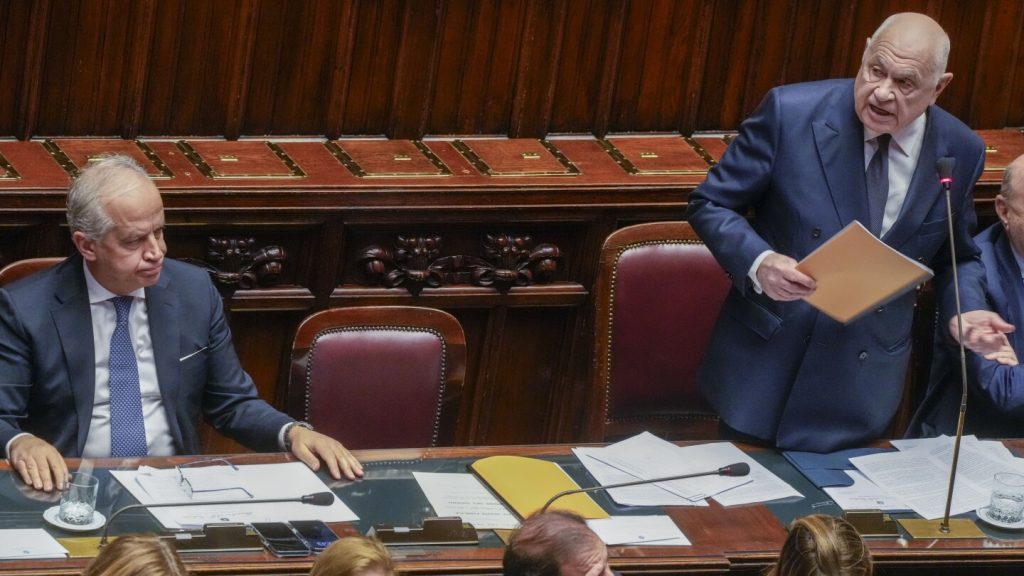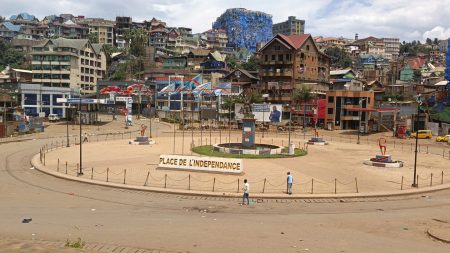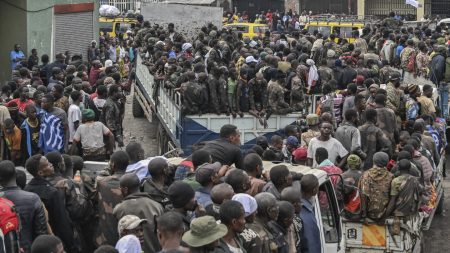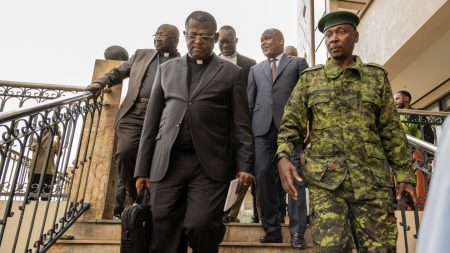Italy’s Controversial Repatriation of Libyan Warlord: A Tale of Legal Battles and Political Fallout
The Repatriation Controversy and Minister Nordio’s Defense
Italy’s Justice Minister Carlo Nordio has strongly defended the government’s decision to repatriate Ossama al-Masri, a Libyan warlord wanted by the International Criminal Court (ICC), arguing that the court’s initial arrest warrant was deeply flawed. Al-Masri, accused of war crimes and crimes against humanity, was arrested in Turin on January 19 but released and flown back to Libya just two days later. Nordio claimed that the ICC’s warrant was marred by contradictions, particularly regarding the timeframe of the alleged crimes. While the warrant initially stated that the crimes occurred between 2015 and 2024, its conclusions referred to crimes committed from “2011 onwards,” creating an “irreconcilable contradiction.” The ICC later issued a corrected warrant limiting the timeframe to 2015-2024, admitting to “typographical and clerical errors.” Nordio emphasized that Italy acted cautiously and legally by releasing al-Masri due to technical issues in the warrant’s transmission, bypassing the Italian Justice Ministry.
The ICC Warrant and Its Flaws: A Closer Look
The ICC warrant accused al-Masri of war crimes and crimes against humanity, including murder, torture, rape, and sexual violence, allegedly committed in the Mitiga prison in Libya starting in 2015. These crimes carry a maximum punishment of life imprisonment. However, the warrant’s contradictions and errors raised eyebrows. Nordio pointed out that the discrepancies in the timeframe of the alleged crimes rendered the document legally problematic. The ICC’s later correction of the warrant, he argued, implicitly acknowledged the “immense mess” it had created. Al-Masri was initially arrested in Turin after arriving from Germany to watch a soccer match, but his release was ordered by Rome’s court of appeals due to the technical issues in the warrant’s submission. Nordio maintained that he only received an informal email from Interpol three hours after the arrest, further highlighting the confusion surrounding the case.
The Arrest, Release, and Diplomatic Fallout
Al-Masri’s release and repatriation have sparked intense criticism from human rights groups and opposition lawmakers. Italy, a founding member of the ICC, is obligated under Article 89 of the Rome Statute to comply with ICC arrest warrants. Critics argue that the government’s actions violated these obligations. The case has also strained Italy’s relationship with the ICC, with human rights groups accusing Italy of prioritizing political and diplomatic ties with Libya over international justice. The Italian government, however, denies these allegations. Interior Minister Matteo Piantedosi emphasized that al-Masri was not involved in Italy’s migration agreements with Libya and that no threats were received regarding his arrest.
Political Backlash and Opposition Criticism
The al-Masri case has become a political lightning rod in Italy, with opposition lawmakers seizing the opportunity to criticize Premier Giorgia Meloni and her government. During a parliamentary briefing, opposition leader Elly Schlein of the Democratic Party lambasted Nordio, accusing him of acting more like al-Masri’s defense attorney than a minister of justice. Schlein argued that Nordio’s focus on legal technicalities was misplaced and that it was not his role to question the validity of an ICC warrant. Opposition members also held up signs in parliament reading “Meloni the patriot at large,” implying that the government was shielding a wanted criminal. The government, however, has framed the issue as a matter of national security, with Meloni herself stating that Italy must defend its interests when national security is at stake.
Human Rights Groups and the ICC’s Reaction
Human rights organizations have slammed Italy’s actions as a betrayal of its commitment to international justice. Amnesty International and other groups have accused Italy of violating its legal obligations under the Rome Statute by failing to surrender al-Masri to the ICC. They argue that the case sets a dangerous precedent, undermining the authority of the ICC and emboldening those accused of war crimes. The ICC itself has not publicly commented on the controversy, but the corrections to the warrant suggest that the court acknowledges the errors in its initial document. Meanwhile, Rome’s chief prosecutor has launched an investigation into whether Meloni, Nordio, and other officials violated laws by facilitating al-Masri’s repatriation, potentially favoring irregular migration.
National Security, Judicial Politics, and the Broader Implications
The al-Masri case has also highlighted tensions between Italy’s executive and judiciary, with Meloni accusing the judiciary of politicizing the issue. She has echoed criticisms made by her political ally, the late Silvio Berlusconi, of a judiciary she claims is overly partisan. However, Meloni has also acknowledged that national security concerns played a role in the decision to repatriate al-Masri. Italy’s close ties with Libya, particularly in efforts to stem migration flows, have been cited as a potential factor in the government’s actions. The case underscores the delicate balance between upholding international law, safeguarding national interests, and navigating complex geopolitical relationships. As the political and legal fallout continues, the al-Masri affair is likely to remain a contentious issue both in Italy and on the international stage.












